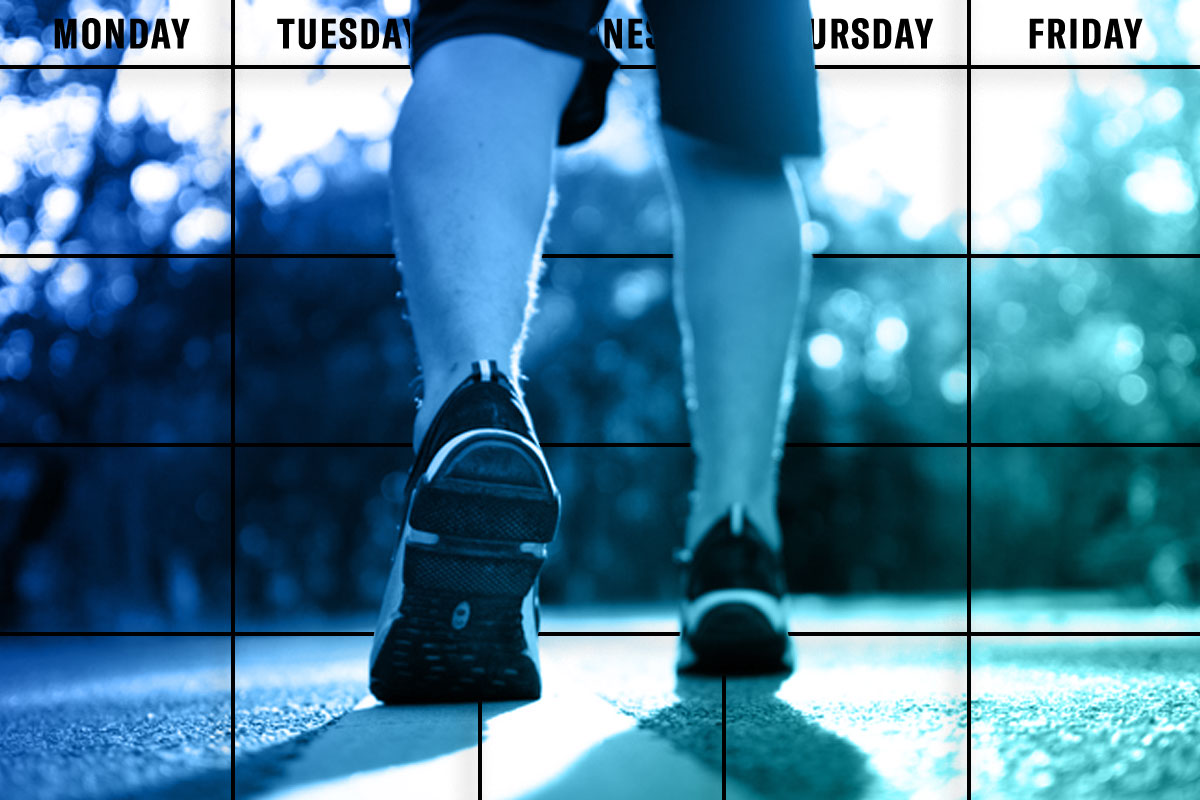There are big benefits to being an exercise beginner—some that you’ll notice from your first workout.

When you’re just starting out with exercise, it’s tempting to wish you could fast-forward into the future when all the movements are easier and you’re more confident in your skills. But there are lots of reasons to embrace the early days of being a beginner and exploring your new habit, even if you feel awkward and unsure.
In fact, there are plenty of perks to being a beginner exerciser. Beginners often see more dramatic results than their experienced exercisers because they’re starting off with more to gain. Without an established fitness base, even small amounts of exercise will be enough to trigger major physical and psychological adaptations. In one study, untrained men experienced significantly larger increases in muscle size and maximal force compared to trained men after a 21-week strength training period.
“People always want to go back to that first one to two years of training because you’re putting on muscle so quickly, you’re getting stronger so quickly, and everything’s just rolling in extremely fast,” says Josh Clay, a certified strength and conditioning specialist and Fitness Programming Specialist at Tonal.
From improvements in your mood to muscle growth, the perks of being a beginner should motivate you to keep going. Here, you’ll find five scientifically proven advantages beginners have when starting an exercise program.
1. Big Results in Minimal Time
Because beginners have a lower threshold of strength and endurance, they don’t need to spend hours working out to see changes. You’ll make the most progress by starting slow. “The biggest issue I see with beginners is they think they need to go full force and exercise seven days a week, two hours a day,” says K. Michelle Singleton, a lecturer in exercise and sport science at Coastal Carolina University and a certified personal trainer. “And that’s just not necessary. It’s not going to let your body recover.” Since beginners haven’t exercised at a high level of intensity before, even small stressors (think bodyweight squats instead of squats with a loaded barbell) are enough to create change and build muscle.
2. Fired Up Metabolism — And More Fat Loss
As you build muscle through strength training, your metabolism will start working overtime. “Your major burner in your body is your skeletal muscle,” says Troy Taylor, Senior Director of the Tonal Strength Institute. “Therefore, if you develop more muscle, you can burn more calories.” Muscle mass burns calories when you’re at rest, so you can potentially lose fat and change your body composition even without altering your diet. Taylor says these effects may be even more pronounced for beginners who have the most potential for change. “Certainly for a beginner, if they started exercising and kept everything else the same, they would see improvements in their body composition,” he says. “Maybe not in their scale weight, but they will increase muscle mass and decrease fat.” In fact, a recent meta-analysis confirmed strength training is effective in both increasing lean muscle mass and reducing body fat.

3. Major Mood Boost
You might feel the emotional benefits of exercise as soon as your first session. Working out has been proven to reduce stress and anxiety, and even alleviate symptoms of depression. A 2018 meta-analysis of 33 clinical studies showed that resistance training significantly reduced depression symptoms, regardless of training volume or even if participants made any measurable strength gains. Another study review showed low-to-moderate intensity resistance training can reliably reduce anxiety, even after a single workout. “People feel those psychological benefits extremely early on when they start exercising because they just start feeling good,” says Singleton. “I’ve had some people who start exercising for a week and they feel 10 times better.”
4. Better Sleep
Beginners can also expect improved sleep once adding exercise to their routine. And if you’re still considering what type of exercise to participate in, one recent study shows resistance training may be even more effective than aerobic exercise. In that study, participants who previously slept fewer than seven hours per night saw a 40-minute increase in average sleep time in 12 months of a strength training program. Participants in the aerobic exercise group only increased their average sleep time by 23 minutes. To enjoy the most benefits in your sleep, Taylor recommends exercising earlier in the day, at least three to four hours before you go to bed. “If you do that, then generally we see a consistent increase in sleep duration and also sleep quality—the amount of deep sleep you’re getting,” he says. “It’s even shown to stave off insomnia in a clinical population.”

5. Stronger Brain-Body Connections
Even before you see visible muscle growth, changes occur on the cellular level to improve how your nervous system coordinates with your muscles. “Adaptations within your muscular system are centered around increases in skill acquisition through your nervous system and increased muscle activation,” says Singleton. As for how you’ll actually notice these changes: Your balance, coordination, and agility will all improve, which will benefit you in everyday life; and you’ll have more speed and power to help your running, cycling, tennis, or golf game.


